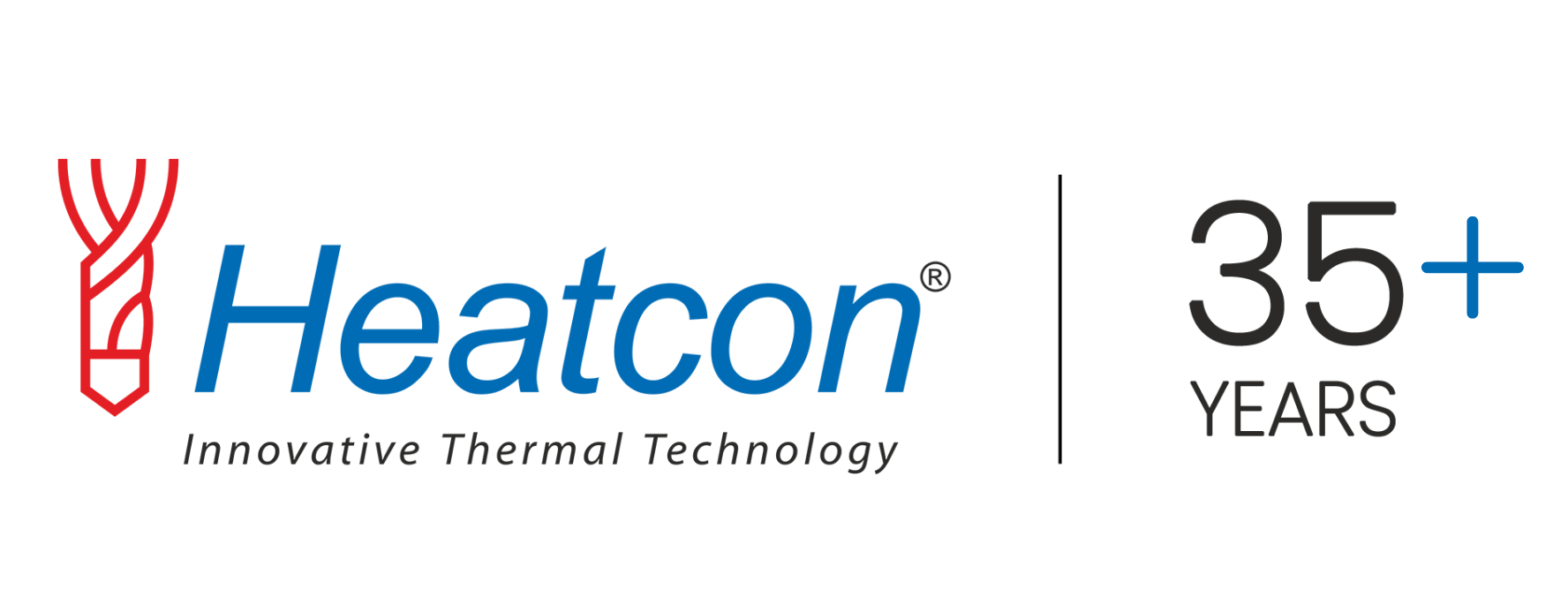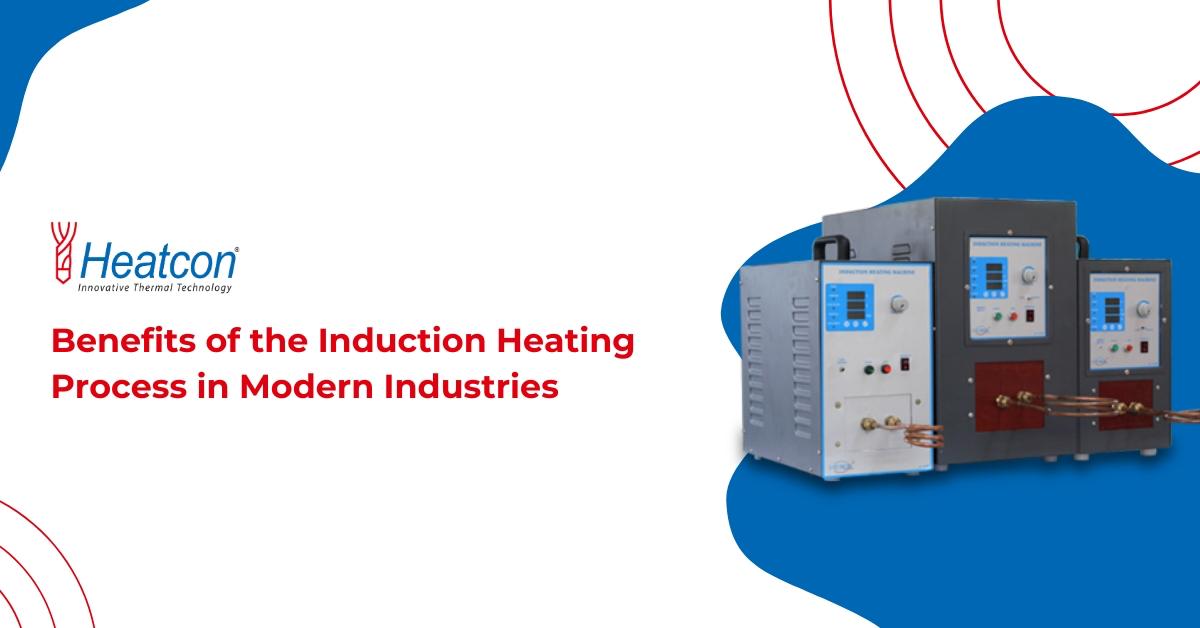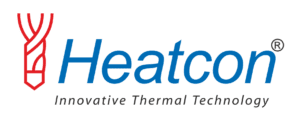Revolutionising Heat Treatment with the Induction Heating Process
The induction heating process has literally transformed industries, delivering accurate, efficient, & non-contact heating ways. A study conducted by Research & Markets in the year 2023 estimates that the global induction heating market will grow at a CAGR of 7.5 percent from the year 2023 to the year 2030, driven by advancements in induction heating technology as well as by the demand for efficient heat treatment solutions.
What is the Induction Heating Process?
The induction heating process tends to involve the generation of heat within a material using electromagnetic induction. An alternating current (AC) tends to flow through an induction coil, which creates a fluctuating magnetic field. When this conductive material is placed within this field, eddy currents are induced in the material, which generate heat because of its electrical resistance.
Features of the Induction Heating Process
Key features of the induction heating process include the following:
- Non-contact heating method: The material is heated without any direct contact, which ensures cleanliness. This in turn ensures reduction of any contamination risks.
- Precision: The process tends to allow for targeted heating, which makes it perfect for intricate components.
- Speed & Efficiency: The heat is generated straight within the material, which considerably reduces energy losses.
- Versatility: Suitable for applications such as metal hardening, brazing, soldering, & annealing.
Benefits of the Induction Heating Process in Modern Industries
The induction heating process is popularly utilised across a gamut of industries owing to its many advantages. Let us delve into some of the most notable benefits, as follows:
- Energy Efficiency
- The efficiency of induction heating is unsurpassed as heat is generated directly in the material, minimising energy wastage.
- Unlike other traditional methods, there is no need to preheat furnaces or involve unnecessary heat loss to the surroundings.
- Speed & Precision
- Induction coil heating allows for rapid heating, which saves substantial processing time.
- The ability to focus heat on specific regions tends to improve the accuracy of operations such as surface hardening & annealing.
- Eco Friendly
- This non-contact heating method tends to reduce emissions & eliminates the need for burning fossil fuels.
- The absence of flames or any hazardous materials ensures a cleaner, safer working environment.
- Reduced Operating Costs
- Lower energy consumption directly translates to cost savings.
- Minimal maintenance requirements because of the non-contact nature of the process contribute to operational savings.
- Consistent & Repeatable Results
- The controlled nature of induction heating technology ensures uniform heating, resulting in consistent quality for large production runs.
- Versatility
- From induction heating for metal treatment to softening polymers, the process is adaptable to a broad range of materials as well as applications.
Exploring How Induction Heating Works
The core principle of how induction heating works lies in electromagnetic induction. When alternating current passes through an induction coil, it produces a fluctuating magnetic field. Conductive materials within this field tend to generate eddy currents, which in turn produce heat owing to resistive losses. Such a technology allows for accurate control over temperature & location, making it invaluable for applications needing high precision & cleanliness.
Insights into Electromagnetic Induction Heating
Electromagnetic induction heating tends to rely on the Faraday principle of electromagnetic induction. The process tends to generate localised heat, minimising the need for bulky equipment. It is commonly used in automotive, aerospace, & electronics industries for improving component durability as well as functionality.
Applications of Induction Heating Technology
The adaptability of induction heating technology makes it an indispensable tool across multiple sectors. Following are some of the most common induction heating applications:
- Automotive: Hardening of gears & crankshafts.
- Electronics: Bonding & soldering delicate components.
- Medical: Sterilisation of equipment utilising heat treatment.
- Metallurgy: Annealing, tempering, & hardening metals.
Advancing with Induction Coil Heating
Induction coil heating tends to provide unmatched flexibility. By customising coil shapes & configurations, industries can achieve targeted heating, ideal for unique component geometries.
Enhancing Metal Properties with Induction Heating for Metal Treatment
The induction heating process is instrumental in metal treatments, improving properties like hardness, strength, & fatigue resistance. Applications tend to include case hardening for automotive components & stress-relief treatments for weld joints.
Key Induction Heating Advantages
- Eco friendly & very safe.
- Rapid & energy-efficient heating.
- Highly repeatable results for mass production.
- Precise control over heating zones as well as temperatures.
The Role of a Non-Contact Heating Method in Modern Manufacturing
The non-contact heating method tends to eliminate mechanical wear & tear, extending the lifespan of equipment. Its contamination-free nature is perfect for industries with stringent hygiene requirements, like food processing & pharmaceuticals.
Boosting Productivity with the Efficiency of Induction Heating
The efficiency of induction heating stems from its ability to generate heat directly within the material, avoiding energy losses common in other conventional ways. This makes it one of the most cost-effective & sustainable heating solutions available.
Procure the Power of the Induction Heating – Get High-Quality Induction Heaters from Heatcon Sensors
Heatcon Sensors happens to be a leader in temperature measurement solutions, providing cutting-edge equipment for the induction heating process. Our products combine durability, precision, & energy efficiency, meeting the diverse needs of modern industries.
Why Select Heatcon?
- Trusted partner for industries globally.
- Wide range of customisable induction heaters.
- Advanced induction heating technology for consistent performance.
In summary, you looked at the transformative potential of the induction heating process, with insights into its workings, applications, & benefits. Partner with Heatcon Sensors to implement this advanced technology in your operations. Contact us today to learn more about our innovative solutions & take your heat treatment processes to the next level.


